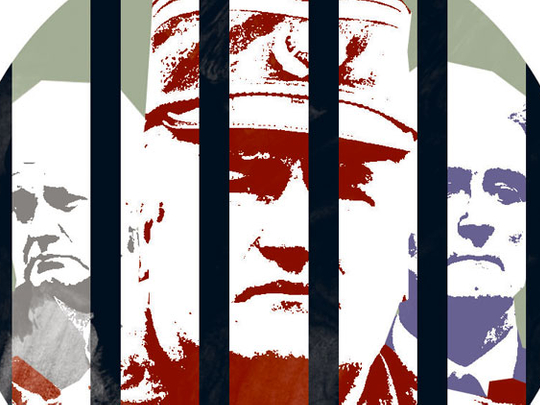
The Serbian army officer took a pre-breakfast swig of slivovitz plum brandy, stared at me coldly, and drew his finger sharply across his neck. We were on the outskirts of the eastern Bosnian town of Visegrad on a crisp spring Balkan morning. I had just asked him about his plans for the Muslim inhabitants — his response was the universal sign for slaughter. The officer was true to his word.
An estimated 3,000 of Visegrad's 25,000 residents were murdered in early April 1992, many killed on the stone Ottoman bridge across the River Drina, their bodies hurled into the chilly waters below. Thousands more were rounded up, packed like livestock into freight trucks and ferried off to newly created detention camps. Unimaginably, the horrific spectre of ethnic cleansing had returned to Europe, less than half a century after the Nazis had tried to eradicate the Jews from the Third Reich.
The campaign reached its horrendous apogee in the summer of 1995, when Bosnian Serb forces overran the supposed UN ‘safe haven' of Srebrenica and its contingent of hapless Dutch peacekeepers. They led away more than 7,000 Muslim men and boys, who were lined up in the nearby fields, executed, and buried in mass graves. The political face of the campaign to carve out an ethnically pure Bosnian Serb fiefdom was Radovan Karadzic, operating in tandem with Slobodan Milosevic, the Yugoslav leader in Belgrade. But the ruthless enforcer was Ratko Mladic, a bull-chested career soldier in the Yugoslav army.
With his capture on Thursday, the three architects of the worst atrocities in Europe since 1945 are all now either dead or in custody. Karadzic is already on trial at the International Criminal Tribunal for the former Yugoslavia (ICTY), based in the Hague, for genocide, war crimes and crimes against humanity; in 2008, he was tracked down to a Belgrade suburb, where he was living as a pony-tailed self-styled faith healer.
Milosevic died in his cell in the Hague in 2006, while facing a battery of similar charges, five years after he was handed over by Belgrade. And Mladic's extradition is now only a formality, after Serbian commandos raided his hideout in a sleepy village near the Romanian border. The Bosnian civil war erupted in spring 1992, after the republic's Muslim-led government, based in Sarajevo, declared independence from the Serbian-dominated Yugoslav federation in the wake of Croatia's bloody fight for secession. I had previously asked Karadzic what would happen if Bosnia did indeed try to break away: "There will be terrible killing," he said. "There will be 250,000 dead.'
Turbulent history
In fact, his prediction was chillingly accurate: during the three-year conflict, more than 200,000 people were indeed killed. Mladic oversaw much of that, although the Croatian paramilitaries on the other side were often just as brutal. Bosnia is a complex ethnic mosaic of Muslims, Serbs and Croats, where memories of internecine massacres, often centuries old, were passed from generation to generation. Mladic was born into this turbulent history in 1942, in a village in eastern Bosnia that was then part of a Croatian puppet state loyal to the Nazis. His father, one of the leaders of the Serb partisans known as the Chetniks, was killed when Ratko was just three, during an attack on Croatian forces. Mladic entered an elite Yugoslav army academy from school, and rapidly worked his way through the ranks.
In October 1991, with the old Yugoslavia ripping apart at its seams, he was promoted to general, as Yugoslav forces struggled to suppress breakaway Croatian forces. In response to the declaration of independence by Bosnia's Muslim leadership, Mladic and his fellow Yugoslav generals imposed a blockade on Sarajevo in May 1992. That began a three-year siege of the capital, in which hundreds of civilians could die in a single day, either from shelling or sniper attacks from the Serbian strongholds in the surrounding hills. Nato launched its 1999 bombing campaign to halt Serbian atrocities in the predominantly Albanian territory of Kosovo.
Mladic's arrest is a hopeful sign that justice will finally be brought to bear on those responsible for such a grisly part of Europe's history — and that, two decades after my shocking encounter with that Serbian officer, the impunity and ineptitude that once characterised attempts to track down the perpetrators of the atrocities have come to a belated end.
— The Telegraph Group Limited









